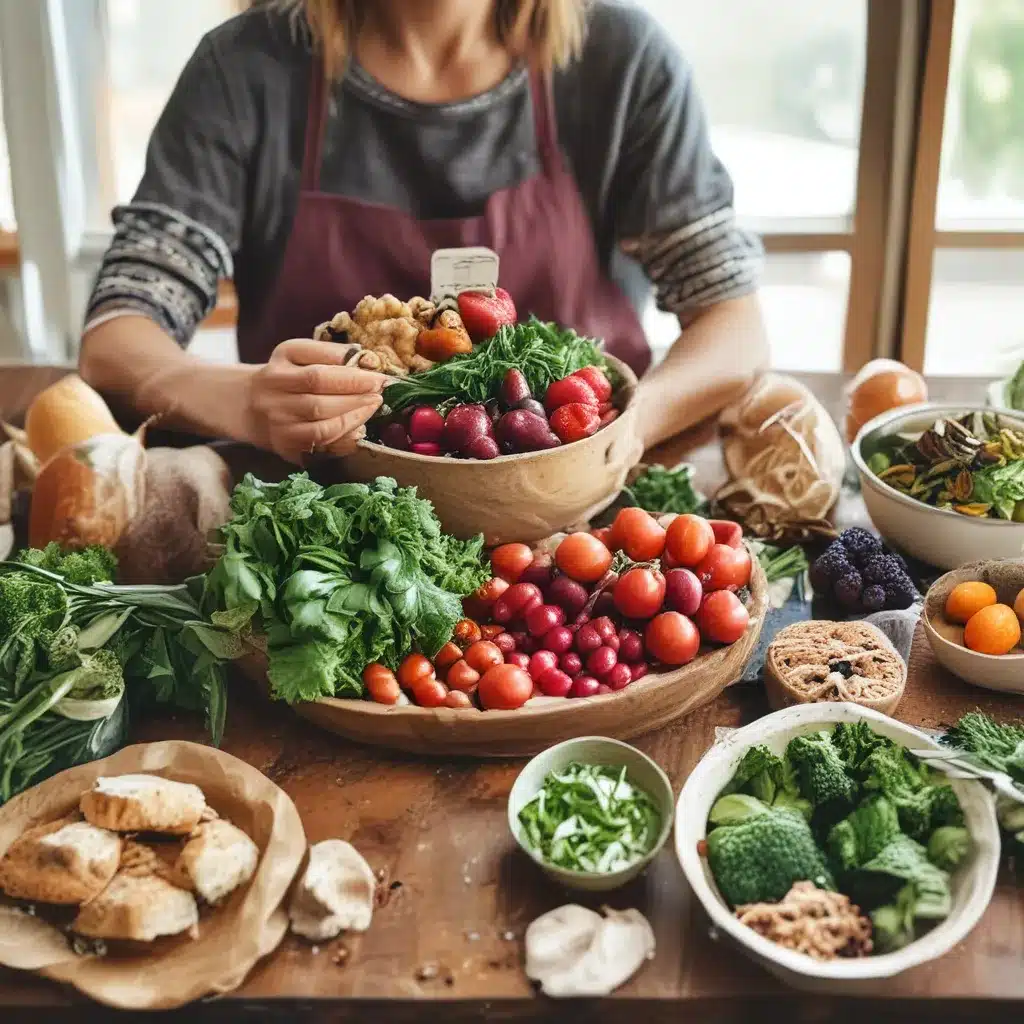
Rediscovering the Joy of Homemade Meals
Have you ever found yourself caught in the vicious cycle of mindless eating? You know the one – hurriedly grabbing whatever’s convenient, scarfing it down in front of the TV or computer, barely tasting the food as it slides down your throat. It’s a common trap, especially during these challenging pandemic times when our routines have been turned upside down and our stress levels are off the charts.
But what if I told you there’s a way to break free from that cycle and rediscover the pure joy and satisfaction of homemade, mindfully prepared meals? It all starts with joining a community-supported agriculture (CSA) program.
The Pandemic’s Impact on Our Eating Habits
When the COVID-19 pandemic first hit, many of us experienced a sort of food-related panic. Would there be shortages? Was the grocery store even safe to visit? And how many cans of beans and bags of rice did one family really need? As the weeks turned to months, we adapted to a new normal of constant takeout and haphazard meals eaten in front of screens, our once-healthy family dinners becoming a distant memory.
As Edible Boston editor Sarah Blackburn eloquently put it, “And without us even noticing—with little else to look forward to at the end of our long days staring at screens—our once-healthy regular home-cooked family dinners had morphed into grab-what-you-want meals eaten at haphazard intervals in front of the TV at our desks or in our bedrooms, decidedly NOT with any sort of mindful intention.”
Cultivating Mindful Eating Habits
But what if I told you that there’s a way to break free from that cycle and rediscover the pure joy and satisfaction of homemade, mindfully prepared meals? It all starts with joining a community-supported agriculture (CSA) program.
As health coach and personal chef Natasha Gayl explains, “Cultivating healthy eating habits during regular life can be a feat for some—throw in a pandemic where each meal needs to be cooked by you, add in children being home-schooled, and you have yourself a recipe for extreme stress.” Yet she also sees mindful eating as an excellent entry point into mindfulness, a practice that can bring much-needed equanimity during these turbulent times.
The Joys of CSA Cooking
So, where do CSAs come into the picture? By joining a local CSA program, you’ll not only ensure a steady supply of fresh, seasonal produce, but you’ll also be well on your way to cultivating a more mindful relationship with your food.
As one Owls Nest Farm CSA member shares, “I love getting to pick produce at the market each week—it’s one of my favorite parts of my summer weekend routine!” The flexibility of a market-style CSA, where you can choose the items you want each week, can be a game-changer for those of us who may have struggled with the pre-packed boxes of traditional CSAs.
But the benefits of CSA cooking go far beyond just the produce itself. As one CSA member reflects, “I’m so glad to have so many more fresh, nutritious veggies in my diet.” And as Harvard’s Dr. Christopher Willard notes, the very act of shopping for our CSA produce can be an opportunity to cultivate mindfulness, as we consider the journey the ingredients took to reach our table.
Mindful Meal Preparation
Of course, the real magic happens in the kitchen. As Zen master Dōgen instructs, “When you prepare food, do not see with ordinary eyes and do not think with ordinary mind.” This might sound esoteric, but it’s simply a call to engage all of our senses in the act of cooking.
Executive chef Jessica Paulson agrees, emphasizing that “choosing whole, unprocessed foods is the most important part of eating mindfully. It forces us to use our mind to plan how and what we want to do with them.” And for Natasha Gayl, the key is to embrace the flow and joy of the process, rather than stressing over perfection. “My cooking tends to be more of a fly-by-the-seat-of-my-pants experience,” she says. “If you like cooking each meal each day, put on your favorite tunes and move through the kitchen like water.”
Savoring the Moment
But the mindfulness doesn’t stop at the cooking stage. As Dr. Willard suggests, we should also approach the act of eating with intention and presence. “I feel like so many of us rush through meals these days,” laments Natasha Gayl. “This type of attention can be so detrimental to our wellbeing.”
Instead, Gayl recommends creating a calm, distraction-free environment – no TV, music, or phones. “Eating in peace allows us to honor the food on our plate, be grateful for our company (even if it’s just our pup staring at us), and be mindful of when we are actually full.”
And as for any specific tips? Gayl suggests choosing dishes that require a fork and knife, as this will naturally slow you down. “Maybe it’s a steak or a sweet potato or broccolini,” she says. “When it’s time to eat, light a candle, put out the fancy placemats, set up matching dinnerware, and uncork your favorite bottle of wine. Whatever it may be, take a big inhale and exhale before your first bite. Then begin.”
The Rewards of Mindful Eating
The benefits of this mindful approach to food – from shopping to cooking to savoring – are manifold. As Natasha Gayl explains, “If you’re somebody who can’t seem to find time to meditate because your mind races too much, I recommend trying mindful eating. You’ll reap similar benefits.”
And as one CSA member attests, the joy and satisfaction of connecting with your food can be truly transformative: “I’m so glad to have so many more fresh, nutritious veggies in my diet.”
So why not give it a try? Join a local CSA, embrace the mindful approach to meal preparation, and rediscover the simple pleasures of homemade, nourishing food. Your body, mind, and taste buds will thank you.



